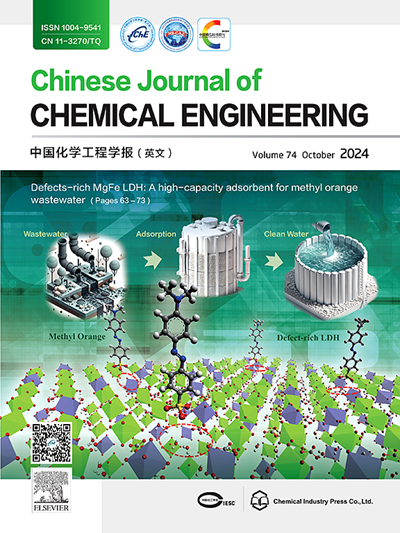基于改进协同训练的热轧带钢力学性能软测量方法
IF 3.7
3区 工程技术
Q2 ENGINEERING, CHEMICAL
引用次数: 0
摘要
对热轧带钢的力学性能进行准确的软测量,对保证产品质量、优化生产、降低成本至关重要。然而,它面临着有限的标记样本所带来的困难,基于协同训练的半监督学习提供了一个潜在的解决方案。为此,本文提出了一种基于改进协同训练(ICO)的机械性能软测量方法。与现有的协同训练框架相比,本文提出的ICO从多视图划分、置信度估计和伪标签分配等方面进行了改进。具体而言,(ⅰ)在多视图划分阶段,ICO将热轧过程的冶金机理与统计互信息相结合,实现了视图充分性与独立性的平衡,提高了模型的性能和可解释性;(ⅱ)在置信度估计阶段,ICO在聚类水平而不是单个样本水平上对未标记样本的置信度进行评估,便于探索样本分布和选择代表性样本;(ⅲ)在伪标签分配阶段,ICO采用一种安全伪标签算法(作者称其为SAFER,最初用于单个样本)为前一步阶段确定的最高置信度的样本聚类分配伪标签,一方面利用了上述在聚类级别处理未标记样本的优点,另一方面利用了SAFER在提高伪标签质量方面的优点。提出的软测量方法有效地预测了真实热轧数据集的力学性能,与传统的监督学习相比,在R2上提高了约5%。本文章由计算机程序翻译,如有差异,请以英文原文为准。
A soft sensing method for mechanical properties of hot-rolled strips based on improved co-training
Accurately soft sensing of the mechanical properties of hot-rolled strips is essential to ensure product quality, optimize production, and reduce costs. However, it faces the difficulty caused by limited labeled samples, for which co-training based semi-supervised learning offers a potential solution. So in this paper, a novel soft sensing method for mechanical properties based on improved co-training (ICO) is proposed. Compared with the existing co-training framework, the proposed ICO introduces improvements from the aspects of multiple view partition, confidence estimation, and pseudo-label assignment. Specifically, (ⅰ) in the stage of multiple view partition, ICO integrates metallurgical mechanisms of hot rolling processes and statistical mutual information to achieve a balance between view sufficiency and independence, which improves model performance and interpretability; (ⅱ) in the stage of confidence estimation, ICO evaluates the confidence of unlabeled samples at the cluster level rather than at the level of a single sample, which facilitates the exploration of sample distribution and the selection of representative samples; (ⅲ) in the pseudo-label assignment stage, ICO adopts a safe pseudo-label algorithm (which is called SAFER by its author and originally used for each single sample) to assign pseudo-labels for cluster of samples with the highest confidence determined in the previous step stage, to take advantage of the merit of handling unlabeled samples at the cluster level mentioned above on one hand, and the merit of SAFER in enhancing the quality of pseudo-labels on the other hand. The proposed soft sensing method effectively predicts mechanical properties on the real hot rolling dataset, achieving approximately 5% improvement in compared to traditional supervised learning.
求助全文
通过发布文献求助,成功后即可免费获取论文全文。
去求助
来源期刊

Chinese Journal of Chemical Engineering
工程技术-工程:化工
CiteScore
6.60
自引率
5.30%
发文量
4309
审稿时长
31 days
期刊介绍:
The Chinese Journal of Chemical Engineering (Monthly, started in 1982) is the official journal of the Chemical Industry and Engineering Society of China and published by the Chemical Industry Press Co. Ltd. The aim of the journal is to develop the international exchange of scientific and technical information in the field of chemical engineering. It publishes original research papers that cover the major advancements and achievements in chemical engineering in China as well as some articles from overseas contributors.
The topics of journal include chemical engineering, chemical technology, biochemical engineering, energy and environmental engineering and other relevant fields. Papers are published on the basis of their relevance to theoretical research, practical application or potential uses in the industry as Research Papers, Communications, Reviews and Perspectives. Prominent domestic and overseas chemical experts and scholars have been invited to form an International Advisory Board and the Editorial Committee. It enjoys recognition among Chinese academia and industry as a reliable source of information of what is going on in chemical engineering research, both domestic and abroad.
 求助内容:
求助内容: 应助结果提醒方式:
应助结果提醒方式:


